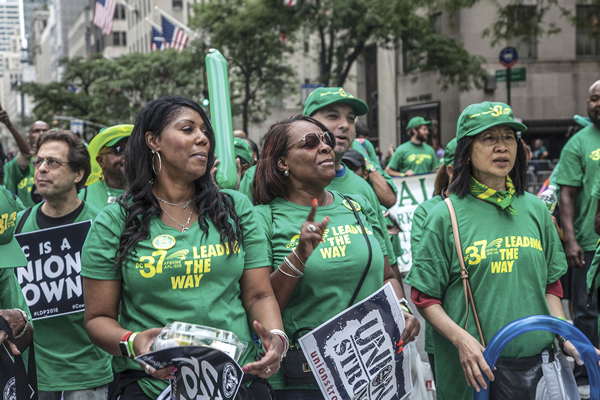The U.S. Equal Employment Opportunity Commission (EEOC) proposed updated workplace harassment guidance last month. The new recommendations “provides further guidance, clarifications and even expansion of the types of harassment defined under Title VII of 1965’s Civil Right Act.”
Some have already noted that the new rule could impact employers, but the guidance would also affect workplace unions, which can have huge impacts on workplace culture and employee experience.
AFFT member and former member of District Council 37 Local 983, Ed Seabron, believes unions should be held accountable just like employers. “The union has just as much workplace influence as an employer, if not more,” said Seabron. “In my experience, workplace harassment came straight from the union, and the power and influence they have is ripe for corruption.”
In 2021, Seabron left his union after dissatisfaction with how he was represented. When he tried to encourage his colleagues to join a different union, the existing union vice president, Marvin Robbins, took to social media. Robbins photoshopped Seabron’s face onto a person shaking hands with another person wearing Ku Klux Klan robes.
Seabron was just one of multiple black employees who experienced harassment from this union.
Moeleek Thomas, a tow truck operator with the New York City police department traffic enforcement division was called racist names when he tried to raise concerns to union leadership.
“Union leaders avoided my questions about the lack of a contract for our unit,” explained Thomas. “I was frustrated, and that frustration led to a confrontation with the vice-president of District Council 37 Local 983, Marvin Robbins, during which, Robbins called me racist names.”
“In a phone call, Robbins called me a ‘house n—er,’ an ‘Uncle Tom,’ and he told me I was nothing but a ‘kiss-a–,’” said Thomas.
Thomas hopes the EEOC rule could help hold union leaders, like Marvin Robbins, accountable for their actions.
The EEOC has invited the public to submit comments regarding the proposed rule at https://www.regulations.gov/document/EEOC-2023-0005-0001 until Nov. 1.
